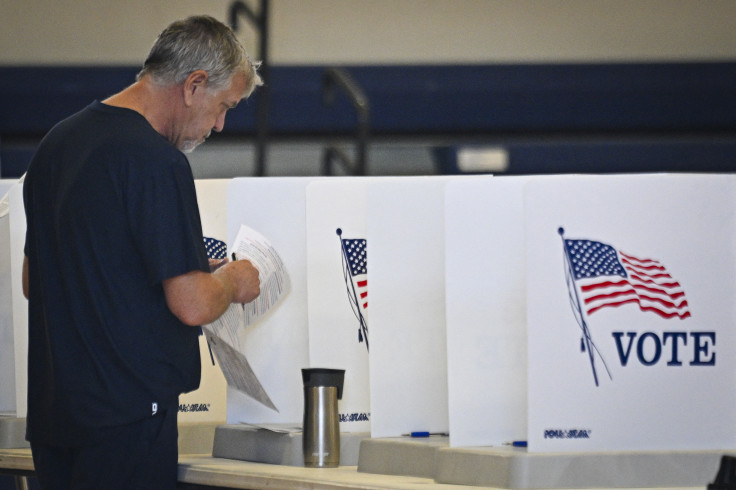
Two special elections in Florida will take place Tuesday to replace former U.S. Republican Reps. Matt Gaetz and Michael Waltz in territories long held by Republicans. But with a strong fundraising campaign and grievances over the second Trump administration, Democrats are hoping to gain some ground and further minimize the GOP majority in the House of Representatives.
Florida's 1st District winner will replace former Rep. Matt Gaetz, whom Trump picked to be his attorney general before allegations of sexual misconduct and drug use levied by a House ethics panel derailed his nomination. There, Republican Jimmy Patronis, the Sunshine State's chief financial officer, will face Democrat Gay Valimont, a gun reform activist and veterans advocate.
The District is one of the most Republican-leaning in the country, presumably giving Patronis a comfortable advantage ahead of the elections. It borders Alabama on the Gulf Coast in the westernmost part of the Florida panhandle, and it is home to both Naval Air Station Pensacola and Eglin Air Force Base.
Trump carried the district by more than 35 points in 2024, slightly outperforming Gaetz, who won 66% of the ballots. Last November, Valimont won just 34% of the vote in her bid for the seat when she challenged Gaetz during the regular election cycle.
Early projections of this race show that registered Republicans in the 1st District have turned out to the polls more than Democrats by 19 points, according to The New York Times.
However, the organization notes that while data on which voters have turned out can be useful for understanding which party has an advantage, it cannot conclusively tell who will win. For one, Democratic or Republican voters may not necessarily vote for their party candidate. At the same time, a significant share of the electorate is not registered with either party.
The four counties that make up the 1st District have voted for Republican presidential candidates almost continually for the past 60 years. Only Walton County went for a Democrat on one occasion since 1960, although all four voted for Democrat-turned-independent candidate George Wallace in 1968.
As of March 3, the district had nearly 556,000 active registered voters, about 55% Republicans and 21% Democrats.
Both special elections in Florida have gathered national attention, as Republicans currently hold a slim 219-213 majority in the House, and have shown signs of unease.
Last week, President Trump pulled the nomination of Elise Stefanik of New York to be United Nations ambassador, citing that due to the slim majority, "we don't want to take any chances. We don't want to experiment."
At the same time, special elections tend to be better for Democrats, who have already achieved upsets in multiple state legislative special elections this year. In January, the Democratic candidate for a State Senate seat in Iowa won by four points in a district Trump carried by 20 points. In March, a Pennsylvania Democrat won by two points in a special State Senate election in a district that Trump won by more than 10 points in 2024.
© 2025 Latin Times. All rights reserved. Do not reproduce without permission.




